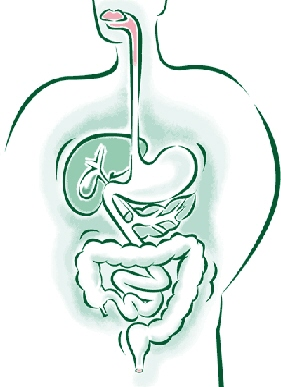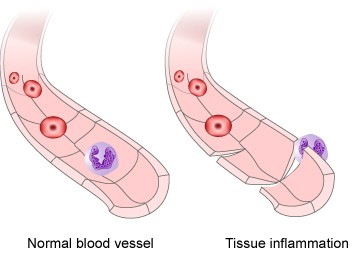Stress, lacking of sleep and sunlight…are what we often avoid
to keep our freshness. However, don’t you know that besides them, there are
many elements in your body which are silently aging you?
In the lately book Eat Yourself Young, Elizabeth
Peyton-Jones explained about some main processes in the body that were
disordered and impulse the aging. Those processes include digestion and toxin
removing, inflammatory, oxidation process and the balance of acidity /
alkalinity. When you are young, these processes run smoothly. However, when you
grow old, stressed factors which may damage your body cause the aging process.
Don’t worry, because health tips below can help you eat in the right way and
have a youthful beauty.

Eating in the
right way will help you slow the aging process.
Aging factor 1: Slow digestion
Digestive system works well as the core element helping you
stay young. Intestine stores energy for the body: when the food comes into the
body, nutrients will be extracted and the rest is removal waste. If your
intestine activities come to a deadlock or constipated, immediately, liver,
kidney, intestine, lung and skin will be pinched that causes the body to start
aging. Meanwhile, the intestine can’t absorb nutrients, vitamins and minerals
as the original; skin and nails are weak and broken; eyes are inflamed and
decrease vision; cheeks are down; your weight increases but the energy is not
durable. You look much older quickly.
A healthy intestinal system will help nutrients be absorbed
through the cell membrane and block all harmful wastes. However, when the
intestine is inefficient, these wastes will be counterproductive and absorbed
into cells, joints and muscles – which we call “gut leakage”. The immune system
reacts with wastes, which hurts joints and muscles, leading to arthritis,
acnes, multiple infections and exhausted feelings.
In addition, more than 70% of immune system locates in the
gut, so if the intestine is disordered, your immune system will weaken. It
means you are easy to be infected and physiccaly disordered such as food
allergy and unpleasantness. You feel unwell, stressful and the aging level
increase.

Slow digestion
Symtoms of irritable
intestine
Being swelled, belched and have bad breath
Bloating continuously (more than 15 minutes/day)
Abdominal pain, heartburn, indigestion
Ulcerative colitis, IBS, appendicitis, constipation,
diarrhea
Symtoms included: acnes, arthritis, body ordor, fatigue,
cold, eczema, vestibular pain, headache, food allergy, psoriasis.
Progression of the
disease
To diagnosis time of intestinal digestion, eat about 5 – 10
of charcoal 2 hours before meals and 5 hours before going to bed. Calculate how
long it takes for you to have black bowel movements. The ideal time is 12 -24
hours. If it’s longer, your bowel may be storing toxins. If earlier, nutrients
may not be absorbed sufficiently. Feces are considered good if they are soft,
wet and no mucus. If they are lumpy, they may stay in the colon for a long
time. If they are harder, you may be constipated. Press on the inside of the
left hip where feces are stored. If there is annoying breath, it’s the symptom
of constipation. The intestine often re-creates itself per 5 days, so you
should take advantage of this time to improve your digestion.
Treatment tips
To help the digestive system to operate at full capacity, do
exercise regularly, drink much water and eat more fresh fruits, vegetables and
grains. Eat more following foods: celery, broccoli, beans, raisins, avocado,
white beans, brown rice, nut, honey, pepper, basil and tea.
Aging factor 2: Inflammation
Inflammation is a common reaction of the body for injuries,
allergies or infections. However, when you get older, inflammation can be
difficult to be controlled. Immune cells which are circulating in the blood
vessels create more pressure changes in the body. Stimulating factors such as
food additives, cleaning chemicals or stress can also cause inflammatory
reaction worse. Your immune system becomes unbalanced, which leads to long
infection, allergy, worse skin and aging signs appear. Sometimes, these immune
cells also attack healthy cells, which cause autoimmunity. Studies show that
inflammation is the major cause of wrinkles and muscle atrophy and diseases
such as IBS, arthritis, diarrhea, body disorder and cancer.

Inflammation
Symptoms of
inflammation
Severe allergies, acnes, eczema, hives, rashes
Diarrhea, colitis, muscus on feces
Dry eyes, tired, deflated, dyspepsia
Eat at night
Headace, aching feet
Flu, infection, congestive
Joints are painful or stiff, skin is flabby and inelastic
Swelled hands and feet
Treatment tips
The immune system is started from the intestine, so if it is
inflamed (symptoms: farting, bloating, new feces), the immune system can be
disordered. To solve this problem, the diet is necessary. A study of overweight
people admits that after a week eating the diet, their inflammation declines.
You can also soothe the inflammation by reducing dietary sugar, flour, red meat
and enhancing foods which can decrease inflammation and be rich of omega 3 fat
acids such as asparagus, cabbage, potato, banana, pear, cod, kidney beans,
cashew, tuna and olive oil.